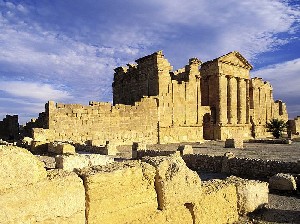
 WORLD TRADE CENTER TUNIS
Location: Tunisia Home of the ancient city of Carthage, Tunisia has long been an important player in the Mediterranean, placed as it is located in the centre of North Africa, close to vital shipping routes. In their time, the Romans, Arabs, Ottoman Turks and French realised its strategic significance, making it a hub for control over the region. Rivalry between French and Italian interests in Tunisia culminated in a French invasion in 1881 and the creation of a protectorate. Agitation for independence in the decades following World War I was finally successful in getting the French to recognize Tunisia as an independent state in 1956.Full name: Tunisian Republic Tunisia has a diverse, market-oriented economy, with important agricultural, mining, tourism, and manufacturing sectors but faces an array of challenges. Following an ill-fated experiment with socialist economic policies in the 1960s, Tunisia successfully focused on bolstering exports, foreign investment, and tourism. Key exports now include textiles and apparel, food products, petroleum products, chemicals, and phosphates, with about 80% going to the European Union. Tunisia achieved four decades of 4-5% annual GDP growth. GDP: $42.39 billion (2015 est.) GDP by Sector: Agriculture: 10.1%, industry: 28.3%, services: 61.6% (2016 est.) Exports: $12.88 billion (2016 est.) Main Exports: Clothing, semi-finished goods and textiles, agricultural products, mechanical goods, phosphates and chemicals, hydrocarbons, electrical equipment. Imports: $17.75 billion (2016 est.) Main Imports: Textiles, machinery and equipment, hydrocarbons, chemicals, foodstuffs. World Trade Centers Holdings Cyprus holds the license for Tunis, which is the capital of both the Tunisian Republic and the Tunis Governorate and is Tunisia's largest city. In the 2nd millennium BC a town, originally named Tunes, was founded by Berbers and also over time was occupied by Numidians. In 146 BC, the Romans destroyed Tunis (along with Carthage); however, the city was subsequently rebuilt under the rule of Augustus and became an important town under Roman control and the center of a booming agricultural industry. Its products include textiles, carpets, and olive oil. Tourism also provides a significant portion of the city's income. This vibrant city is the heartland of the Tunisian economy and is the industrial and economic hub of the country, home to one third of Tunisian companies; including almost all the head offices of companies with more than fifty employees. Tunis attracts foreign investors (33% of companies, 26% of investments and 27% of employment). |



